By Matt O’Keefe
Nate Cosby rose through the ranks at Marvel to become editor of such critically acclaimed all-ages titles Franklin Richards: Son of a Genius, The Wonderful Wizard of Oz, and Thor The Mighty Avenger. In 2010 he went freelance, leaving Marvel and writing for publishers like Archaia, Image, and Dark Horse. I talked to him about past, present, and future.
I figured I’d start by asking about your time at Marvel. How did you get a job in editing?
I’d taken an internship at Marvel in college. I was a film major, but I wanted to see how comics are made. So after I graduated, I moved to New York to work on a TV show, but had nothing to do during the day. So I hung out at Marvel during as an intern again. Then someone left, so I took over their desk, then their job.
Internships seem to be the main route to a job in editorial. Are there any other ways you know of for someone to get an editing gig at Marvel?
Interns get hired because it’s an easy transition for someone that’s been there for a bit to just take on extra responsibility, rather than have to take the time to fully train someone from elsewhere. I was stressed like crazy when I first got hired, but at least I had a basic idea of how to do the job. But not all interns get that shot. Lots of luck involved. You just have to sit there and be totally invisible when not needed, but available to prove your worth whenever necessary.
Other than being an intern, people tend to get hired as editors because they were editors somewhere else, and/or know someone in the hiring food chain that can help get their foot in the door.
What’s the environment like in the modern Marvel Bullpen?
When I was there, it was pretty much a normal office job, with a few more toys and posters than your standard office. Come in, do all the work, go to meetings, go home, with the occasional 15-minute discussion of loopholes inherent in Mjolnir’s rules of only being picked up by those “worthy.” Y’know… normal stuff. :)
What appealed to you about Marvel’s all-ages line?
I’m a BIG believer in making comics that are accessible and fun to the biggest audience possible. Things don’t need to be dumb for kids and include grisly murder for adults. You can have stuff work on several levels; it’s maybe more work, but most of my favorite stories are just as resonant to me today as they were when I was six. When I work on All-Ages books, I like to imagine that at least one copy’s gonna find its way into the hands of a kid that’s never read a comic, AND another’ll be picked up by a 35-year-old that hasn’t read a comic since they were 12.
Not EVERY story can/should work on that kind of level… Deadwood and The Thick Of It ain’t for kids. But I get a kick out of crafting stories that parents and kids can both get jazzed about reading.
I know I’m not alone in thinking that Thor: The Mighty Avenger was that kind of story
Yeah.
It was originally planned as a twelve-issue series, but was cut down to eight. Can you talk a little about what you, Roger Langridge, and Chris Samnee had planned for those last four issues?
I don’t wanna spoil it, in case Roger and Chris ever get to finish it! :)
I will say it was a very satisfying ending. Roger and Chris (and Matt Wilson and Rus Wooton) made some great magic on that book. I’ve never been prouder of editing a book than that one.
I was also a big fan of Franklin Richards: Son of a Genius. How was working with Chris Eliopoulos on the title? I assume good, since you’re still working together.
Chris is my least favorite person in the world and he has pictures of me doing terrible things to llamas and that’s why we still work together.
I love the old guy. Franklin had started a little before I got there, with Marc Sumerak co-writing and Chris plotting. Then Chris took the whole thing over. He’s got a unique perspective on making comics…there’s one side of him that’s been lettering for decades, which gives him an incredibly hard work ethic and allows him to grind out product on demand. But he’s also an amazing creator, writer and artist, with a childlike sense of wonder that’s not been snuffed out by never-ending deadlines. It’s a real treat to work with such a professional goof-off.
Did you have him in mind for Cow Boy from the beginning?
Yeah, Cow Boy doesn’t exist without Chris. We knew we wanted to do something together, that we didn’t want it to just be a kids books. So I started thinking of pretty much every genre there is, but the Western genre was pulling the strongest. Chris drew a crayon picture of a little kid on a horse, and I said “Cow Boy” out loud within a few seconds. Everything flowed from there.
Why was Archaia the right choice of publisher for Cow Boy?
Archaia attracted us because they’ve made great strides in reaching outside the direct market, and showing their books to audiences that wouldn’t have otherwise ever read a comic. The direct market is AWESOME, don’t get me wrong. But especially with Cow Boy, Chris and I worked hard to make this book accessible to pretty much anyone that understands (or is learning) English. It’s a universal story, and Archaia’s shown that they really know how to cross over (with Dapper Men, Tale Of Sand, and the like.)
Archaia always produces beautiful books, but they really outdid themselves with Cow Boy. Did you or Chris have any hand in the design?
The book is 100% designed by Chris, with plenty of thoughts from me. Archaia gave some notes, but mostly they were great about giving us the freedom to craft our own thing. It was a really personal thing for me; I wanted to capture the look and feel of the old dime novels I’d find in my grandmother’s house in Iuka, Mississippi. They’d been by dad’s books from the 50s and 60s. I enjoyed the texture and imperfections as much as the stories. Chris did awesome work on all the design, not to mention the art, color and lettering.
You shared the script for Chapter 1 of Cow Boy on your Tumblr page. How did you learn to write comics?
Well, I worked at Marvel for nearly six years. That’s pretty much the best comic scriptwriting school you could hope for. There’s no one template for comic scripts, but my template is sort of a mushing of other writers’ whose templates seemed to flow well when I read them. Roger Langridge, Jeff Parker, Fred Van Lente’s scripts are easy to fly through, so I took a little from all of their styles.
And conversely, I kept in mind the scripts that drove me CRAZY to try and read…and I try not to subject my editors to that. :)
There were a lot of quiet moments in Cow Boy with little or no dialogue. They reminded me of Spaghetti Westerns from the sixties. Were they an influence?
Definitely. Sergio Leone was a huge influence, as was Unforgiven and Deadwood. Lots of Westerns feature people that are frustrated. They don’t have much to say, because they don’t think words mean much. So when they DO speak, it matters. To me, that can be really similar to being a kid. You have all these thoughts, but you don’t know what they mean, and you don’t know what to do about them. But rather than being a loud brat, Boyd’s internalized all his confusion and unhappiness…and lets his actions do most of the talking.
You have to give up a lot of control to the artist in those kinds of scenes. Was that difficult?
Not at all, because it’s Chris. He’s a master storyteller, both in drawing and writing, and understands the medium and how to use his style effectively. I wrote a very specific story with Chris’ visuals in mind, knowing that I wanted his art to shine most of the time instead of people over-talking. I put dialogue in there when words were needed. Writer/artists don’t work on a point system (or they shouldn’t, anyway.) I’d be happy to not have a single line of dialogue in a book, if that’s the best thing for the story. What matters is that Chris and I are equal collaborators, and we trust each other to do what’s best for the book.
The level of trust between you two shows in the final product, I think.
Thanks. :)
You and Chris released the first four chapters of Cow Boy online before the print edition came out. Were you worried people wouldn’t buy the hardcover because they’d already read most of the story?
Nah. We figured that nobody knew what the book was, why not put it out and prove that it’s worth their time? If they liked it, maybe they’d go buy it… as opposed to not seeing it, and not buying it because they don’t know what it is. Might’ve been a little risky, but lots of people have told me they read ten or twenty pages online then stopped because they wanted to wait for the book. That’s a pretty rewarding thing to hear.
I’ve also had people tell me they downloaded some of the story as a torrent? Which totally confused me. We put over 70 pages online for free… we’re trying to help you steal! :)
Where does Boyd go next, now that he’s stopped believing in family?
He’s after ALL of his kin.
He’s been tricked and lied to and messed with his whole life, and he’s fed up. And he feels the only way to be rid of his family is to round them up and make them pay for their misdeeds. But they’re not all in one place…all his brothers, sisters, aunts, uncles, cousins are all over the places, making all different sorts of trouble. He’s gonna go after them all, and then he’s gonna go home to Mama…
When is Cow Boy 2 coming out?
I was just writing back to the Archaia big cheeses a second ago about scheduling! We’re working to get Volume 2 out around September 2013. Just gotta line up mind and Chris’ schedules right. It’s going to be REALLY different from the first book.
Like REALLY different.
Like I sit there and write it and think “Oh jeez this is REALLY different. I thought I was just writing about a little kid in a cowboy hat?”
Who at Archaia hired you to edit Storyteller?
That’d be Stephen Christy. We go back a bit, we were interns at Marvel together.
What guidelines, if any, did he give you when you were putting it together?
He demanded the pages not be made of pudding. I was furious.
Archaia’s got a great relationship with the Jim Henson Company, and it was really about collaborating with Lisa Henson and everyone over there, making sure we were staying true to the heart of Storyteller. It was on me to pick the writers and artists, help guide them, and try to make an anthology work as both a coherent book and a grab-bag of fun tales.
It was SUCH an honor not just to do a book based on a TV show I adored as a kid, but also to work on a script written by the great Anthony Minghella. That was the most stressful thing, adapting an Academy Award-winning artist.
How’d you go about assembling the talent for Storyteller?
I went to the people I’d worked with who were my favorites (Jeff Parker, Paul Tobin, Colleen Coover, Chris Eliopoulos, Craig Rousseau, Ronan Cliquet, etc) and then contacted people whose work I love (Ron Marz, Jennifer L. Meyer, Marjorie Liu, Evan Shaner, Mike Maihack, Tom Fowler, Katie Cook, etc). Pretty much everybody said yes. I’d like to say it was a more complicated process, but sometimes a project just falls into place like that.
You opened up submissions for Volume 2 on your Twitter page a few months back. Did you find anyone through that?
I did indeed! There’s no schedule for when Volume 2 will be out, but it seems like the first one sold pretty well. I wanted to find some fresh blood, mash them up with other new people. I’m still out there looking. I find Twitter to be an invaluable tool for finding talent these days…
How many submissions did you get?
Ohhhhh y’know…a bazillion. :)
Still getting them actually, along with submissions for other projects I’m overseeing. I tweet and include #artisthunt whenever I’m on the lookout.
How do you and BenCool share the writing duties on Pigs?
We talk out the plot, where the story’s going, who needs to be where, etc. It’s a complicated conversation, since the story takes place in three different time periods (though one’s getting awfully close to merging). Then I go take a first pass at dialoguing the scenes (I always tend to write dialogue first), Ben adds description and pacing, then we pass it back and forth as much as necessary till we’re both happy. It’s a pretty great collaboration; don’t know if it’d work with every writing team, but we like it.
It must be nice to let loose a bit on Pigs, without the restrictions of all-ages material
Ah, I drop f-bombs plenty in real life. Being able to cuss and go big on the sex/violence doesn’t necessarily feel like a release for me. It’s just a choice to make sure the audience knows what the characters are about, based on their actions and words. Hardest thing is maintaining the story and tone, regardless of the age-appropriateness.
…and characters. Character is always most important to me.
When does the next issue come out?
We just wrapped the second trade a couple weeks ago, so it should be out soon. We’ve had to take an indefinite break for now, while Ben and I work on other time-sensitive projects. It sucks, we want to keep going, but we’ve got to focus on other things for the time being.
Buddy Cops by you and Evan Shaner ran in Dark Horse Presents for three months. Will we see the series continue in some form?
Ohhhhhhhhhhhhhh y’know… maybe. :) We’ve talked to Dark Horse about doing a little more; hopefully something comes out of it. I love working with Evan, that dude’s a MASSIVE talent that’s gonna be too in-demand to work with me aaaaaaaany second now.
Well until then you have your Green Hornet annual in December. How’d it go returning to licensed characters for that project?
It was great! Dynamite gave me a long leash to do whatever I wanted. I love Dynamite’s pulp characters; those guys are classics, some created in the 30s before Superman. I came up with a story that focused on Hornet’s influence on Chicago, through the eyes of a little newspaper girl named Ruby. I just realized: it may be my first official time I’ve been commissioned to write a “superhero.” Which is weird to me.
You’re clearly good at networking. You’ve continued to work with Chris and Roger after leaving Marvel, you were able to bring in a great group of creators for Storyteller, every issue of Pigs has a cover by a different name artist… what’s the trick to building those strong connections?
I dunno, it’s hard to say… I just try to respect the people I work with, and hopefully they respect me in return? I consider a lot of the people I work with to be friends, but there’s plenty of collaborators that prefer to keep it totally professional. I like to accommodate and focus on the primary goal, which is making the best book possible. I do my best to not show diva-type tendencies. Give me a notebook and coffee and a banana and I can work with pretty much anyone.
Last question. As a Gilmore Girls fan, what did you think of the first ten episodes of Bunheads?
THANK GOD! FINALLY AN IMPORTANT QUESTION!!!!!!!!!!
:)
I find Bunheads absolutely charming, and it is by far the most unrealistic show currently on television.
Game Of Thrones, Grimm, Once Upon A Time, and Beauty And The Beast are all more plausible than a former Vegas dancer marrying Cameron from Ferris Bueller and moving in with his dance teacher mother.
But it’s Amy Sherman-Palladino, and this is what she wants to do. I will take a bullet for that woman.
I think that’s a good note to end the interview on!
You can follow Nate Cosby on Twitter and check out his Tumblr for regular updates.
Matt O’Keefe is a writer based out of Minneapolis. You can reach him @Matt_OKeefe and check out some of his works and musings at MattWritesStuff.com.


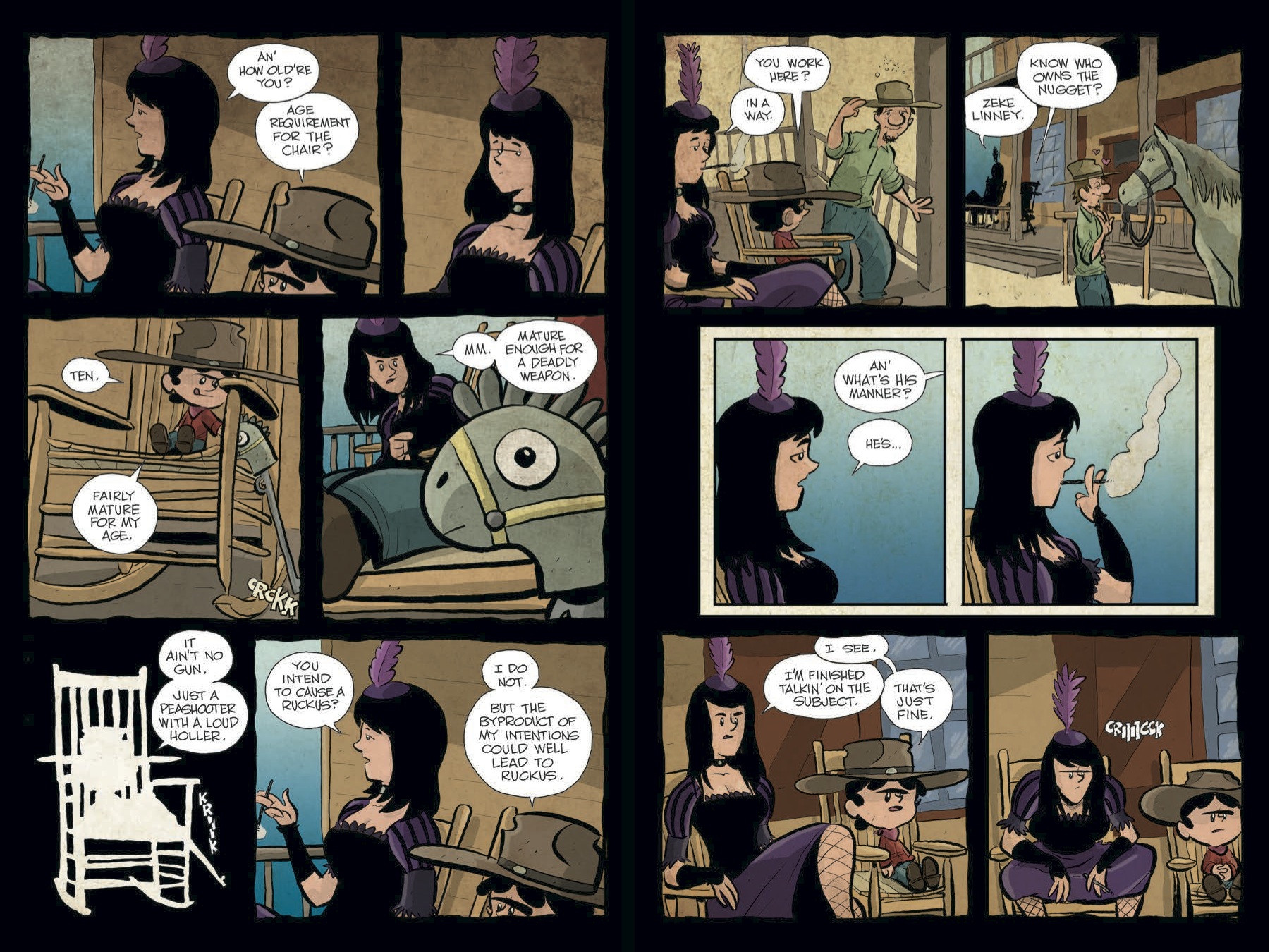
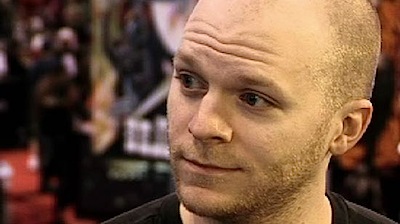
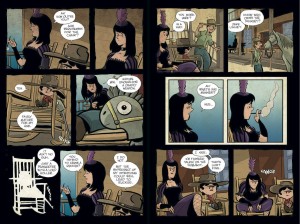
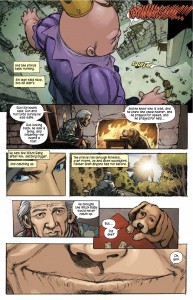
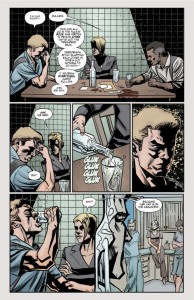
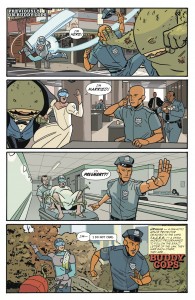
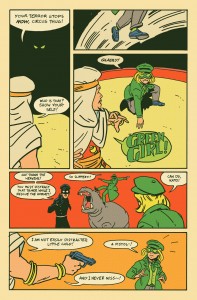
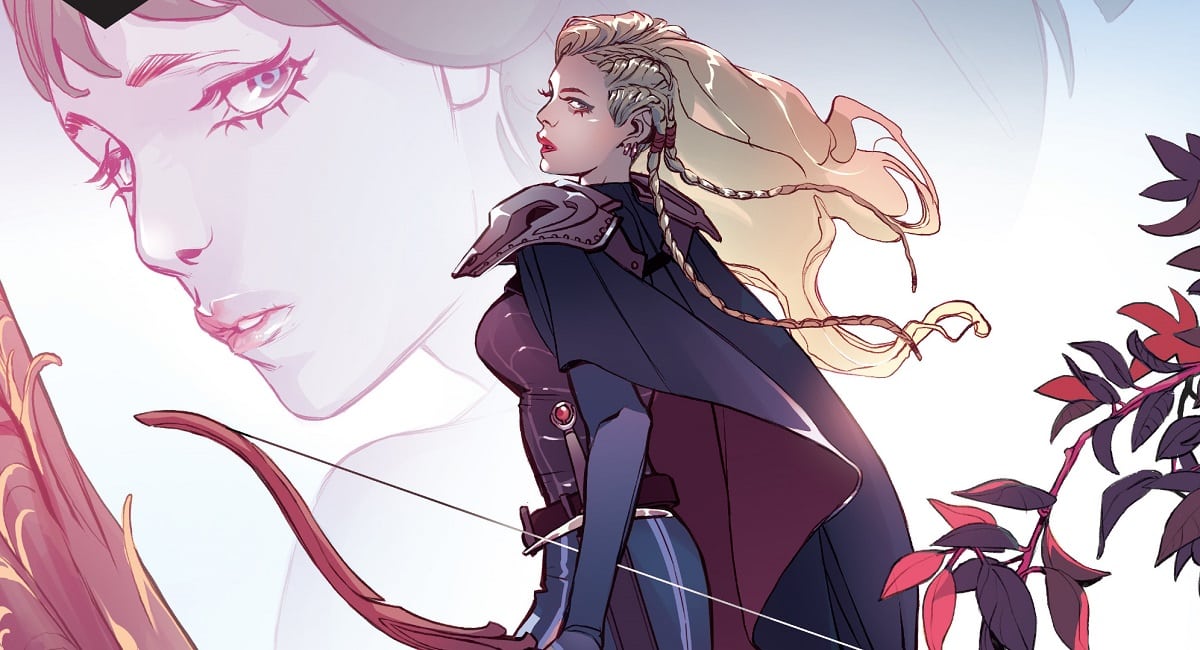
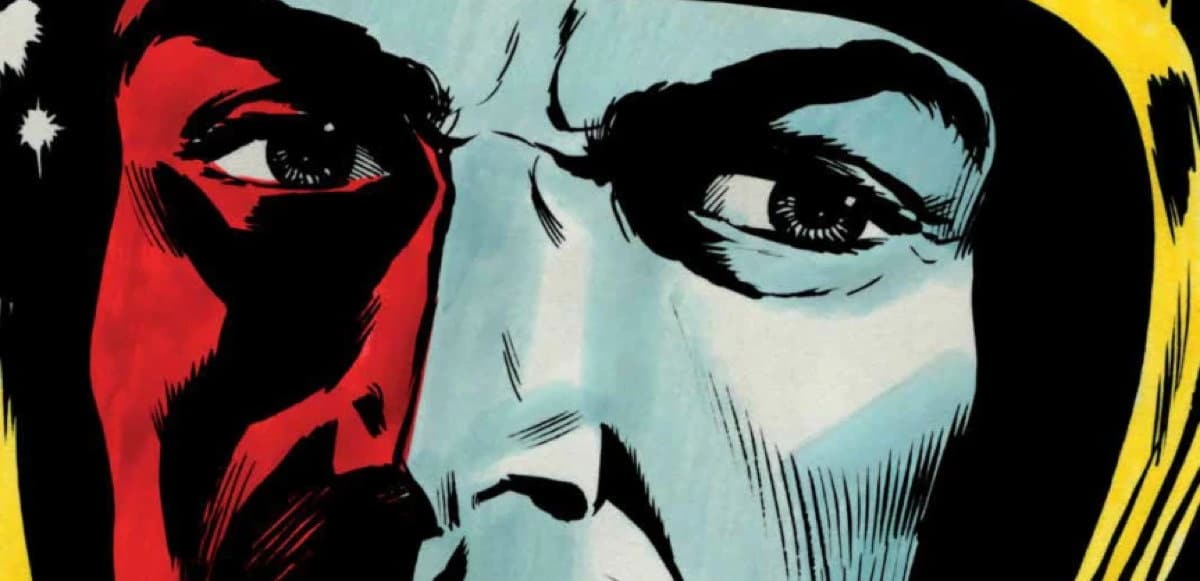
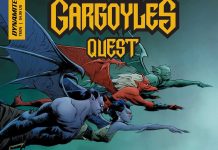



RT @Comixace: Telling Stories at Archaia, Making Buddies at Dark Horse, and Pigging Out at Image: Nate Cosby Talks Comics: {content} htt …
RT @Comixace: Telling Stories at Archaia, Making Buddies at Dark Horse, and Pigging Out at Image: Nate Cosby Talks Comics: {content} htt …
RT @Comixace: Telling Stories at Archaia, Making Buddies at Dark Horse, and Pigging Out at Image: Nate Cosby Talks Comics: {content} htt …
RT @Comixace: Telling Stories at Archaia, Making Buddies at Dark Horse, and Pigging Out at Image: Nate Cosby Talks Comics: {content} htt …
Comments are closed.